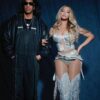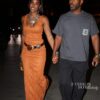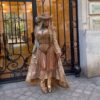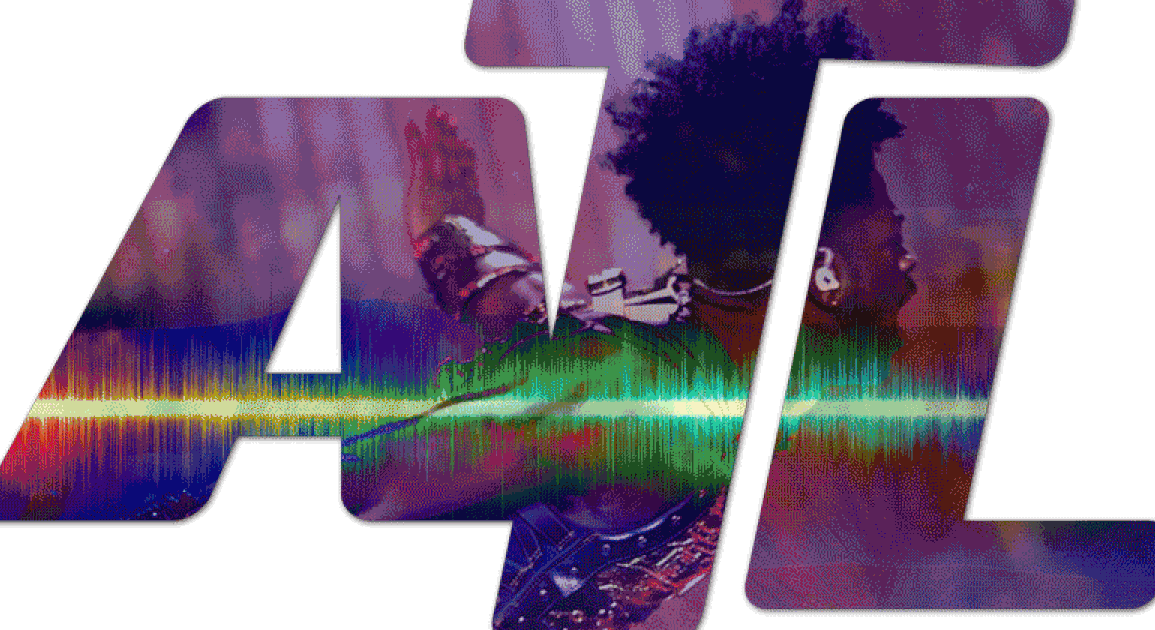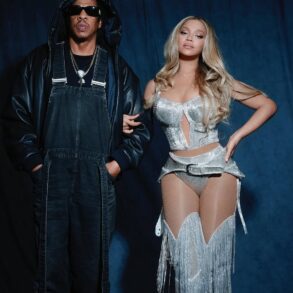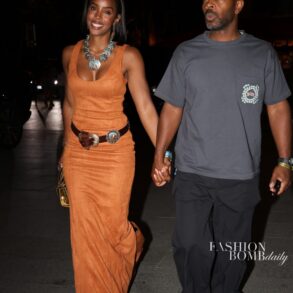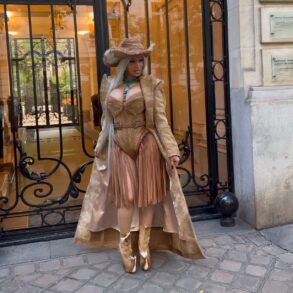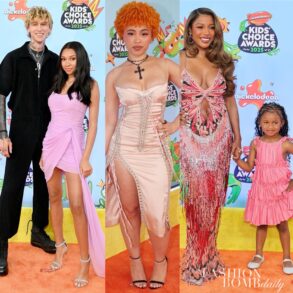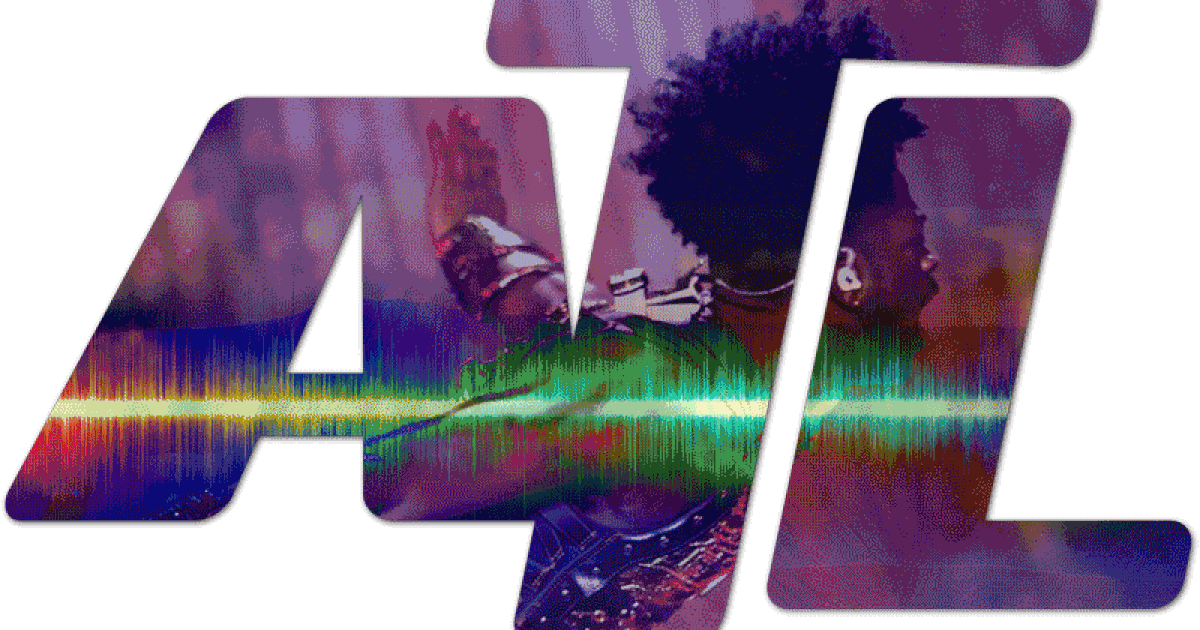
Now, as hip-hop, one of the most culturally relevant genres of music celebrates its 50th, this bravado confirms that LGBTQ+ culture is indeed an artery in the heart of the art form. And, with nuances borrowed from queer culture in New York City, Atlanta and beyond, the impact of that community is arguably what keeps it both provocative and purposeful.
Credit: Robb Cohen for the Atlanta Journal-Constitution
Credit: Robb Cohen for the Atlanta Journal-Constitution
To understand the fullness of hip-hop and its now more colorful presence, it’s imperative to understand its origin. If you were to search the internet for a characteristic description of music in the 1970s, the decade of hip-hop’s birth, the search results would undoubtedly tell tales of dance floors around the world being illuminated by disco balls, while well-heeled feet moved and grooved to not only disco, but also variations of rock, funk and other genres that were unfamiliar, but steadily making their presence known.
Among those was a South Bronx born form of music that would eventually surpass being just sound and grow into the most popular musical genre in the United States. In its introduction, the genre led with defining elements of disco like funky beats and electric feels — evident in cuts like “Step into A World (Rapture’s Delight)” by KRS-One. The influence was also visible in the style of early hip-hop performers, as the fashion aesthetic included fitted, shiny and sparkling looks, as seen in NYC nightclubs.
But, despite these similarities, hip-hop’s debut came with a dominating heterosexual presence — much different from the feel-good and freeing messaging of disco. In fact, gay bashing took bold precedence in early iconic offerings like “Licensed to Ill,” the debut studio album from the Beastie Boys, with an original title including an anti-gay slur.
For these reasons, many artists that would become gay icons chose to hide their sexuality, but groups like Age of Consent did not. The West Coast-based duo, celebrated for being the first group to produce and perform an anti-gay bashing rap, dared to lead with messaging that included a gay punk performance perspective. After their debut performance of “Fight Back,” a Los Angeles Times writer summed it up as a “beautifully executed blend of self-deprecatory humor, gay pride and militancy that fully displayed rapping’s potential.”
Now, with Atlanta being the gay epicenter of the South and arguably the new incubator of hip-hop culture, queer culture has a seat at the table that can’t be denied — by consumers or new purveyors of the art. In 2016, Atlanta native and fashion forward rapper, Young Thug, who is currently on trial facing gang and racketeering charges, set social media and the industry ablaze when the artwork for his “Jeffrey” project (originally titled “No, My Name is Jeffery”) showcased him flaunting a gender-neutral, dress-like garment. More recently, the summer of 2023 belonged to Beyoncé, “Renaissance” and the world tour that would bring it to life. The album and everything that makes it a safe space for gays, includes writing and production credits from cisgender hip-hop icons including Drake, The-Dream, Pharrell, Tricky Stewart and Jay-Z.
Now with bold talents and paramount personalities like Da Brat, Saucy Santana, Ice Spice, Doechii and Big Freedia dominating charts and culture, the question of queer relevance in hip-hop has become rehetorical. Former fashion stylist turned creative director Kwamé Waters offers, “If we’re being absolutely honest, queer culture has always been embraced in hip-hop, privately, whether it was the talent/artistry lent to the genre by way of ghost writing or closeted lives coded in 16 bars.
The LGBTQ+ community should also be “applauded for being receptive to ways that other artists, mainly straight, interpret their creativity and points of view, especially when borrowing from the provocative culture,” he said.
Credit: WE-TV
Credit: WE-TV
Award-winning rapper and So So Def queen, Da Brat, who married Jesseca “Judy” Harris-Dupart in 2022, previously told Essence magazine, “I never confirmed anything because in the ‘90s, it wasn’t cool back in the day. I’m a little bit nervous because I’m not really used to talking about this thing. Because I’m not a public person when it comes to my personal life.” Now, also a mother, her outlook is different, telling People magazine, “It’s way different now than it was before,” she said of living openly as a member of the LGBTQ+ community. “When I came out, I was like ‘Damn, if I knew it was going to be this nice and loving I’d have probably come out a long time ago’.”
Now, with the strong presence of social media, fewer roadblocks and more accepting of the queer culture, the next 50 years of hip-hop’s existence will offer a more welcoming stage to the next generation of alternative and non-binary artists.
“For years gay culture has been at the forefront of influencing the style, movement and language of so many of our favorite hip-hop artists, so I have no doubt that we’ll continue to see that happen,” said Atlanta-based Janeé Bolden, senior content director of pop culture at iOneDigital. “But what’s more exciting is the way queer culture has been pushing back against homophobia and misogyny in hip-hop. Our culture should be a safe haven to all Black and Brown people regardless of gender identity and sexuality and I’ve noticed a clear shift in the hip-hop narrative that has allowed space for acceptance in a way that hasn’t always existed.”
This post was originally published on this site be sure to check out more of their content.

